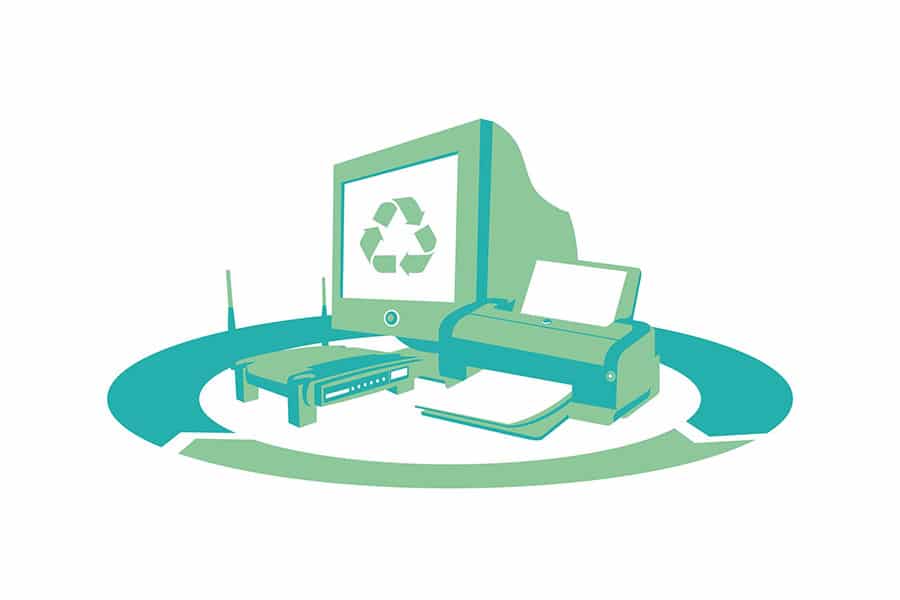The Basics of Computer Recycling

We live in a world dominated by electronics. The next time you’re in a restaurant, take note of how many people have their faces buried in their phones (you may have to look up from your own). The result of our obsession with technology is that we’re not only surrounded by monitors, mobile devices, and electronics of all kinds, but at some point, we’ll want to upgrade to the latest and greatest gadgets.
This means getting rid of old devices, computers included. Unfortunately, doing away with your computer isn’t as easy as tossing it in the trash like an old milk carton – and this is especially true of business computers. Not only do electronic devices often contain toxic materials that are illegal to dump, but your company hard drives are home to all kinds of sensitive data that you are legally bound to protect and dispose of properly.
How, then, can you get rid of your old computers to make way for new electronics? Here are a few basics about computer recycling every business should be aware of.
Toxic Materials
Most electronics include a variety of materials that are deemed toxic and are generally illegal to throw in the trash. Lead, mercury, cadmium, and beryllium are just a few toxic materials commonly found in computers and other electronics.
Environmental regulations can vary from state to state, but it’s always best to avoid dumping harmful toxins, especially when recycling services are available. If you want to be a responsible business owner and a good member of the community that supports you, don’t knowingly pollute by dumping computers.
IT Security
Polluting the environment with e-waste is a no-no, but even worse is failing to protect the sensitive data your consumers (and employees, business partners, vendors, and more) entrust to you. Before you can dispose of old computers, you need to make sure to remove all traces of confidential data from hard drives, and this isn’t as easy as hitting the delete button.
You are not only responsible for keeping this data secure against hacking and theft, but you must also destroy it in keeping with all applicable privacy laws and additional regulations related to your industry. This means first removing data and then overwriting hard drives to ensure that no trace of previous data remains.
From there you have a couple of options. You can either allow the hard drives to be securely recycled (i.e. shredded) or you can resell them to recoup some of your expense. The best way to complete this process is to hire a certified data destruction specialist to handle your needs from beginning to end.
Professional Services
There’s no reason to try to sift through computer recycling obligations on your own. With help from a reliable data destruction specialist like SEAM, your Sioux Falls business can be assured of compliance with all applicable environmental safety and consumer privacy laws, whether you opt to shred hard drives or refurbish and resell devices. Contact SEAM at 605-274-SEAM (7326) today to find out about options for recycling your outdated computers and other electronics.
SEAM provides IT recycling and data destruction services including onsite shredding and hard drive wiping to South Dakota, North Dakota, Minnesota, Iowa, and Nebraska.
Schedule a pickup or contact us for more information.





